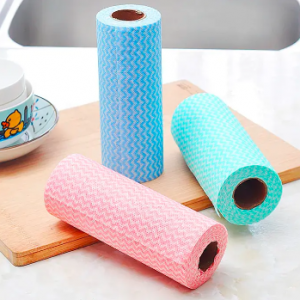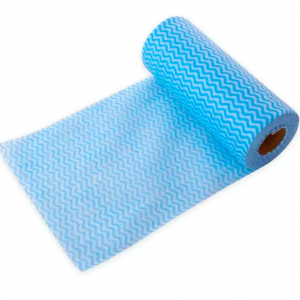In the world of textiles, there is a star material that is quietly changing the industry - PP non-woven fabric. This versatile and sustainable fabric has attracted attention for its exceptional properties and countless applications. In this blog, we'll explore this amazing material and delve into its many uses and benefits.
What is PP non-woven fabric?
PP non-woven fabric, also known as polypropylene non-woven fabric, is a synthetic fiber made of thermoplastic polymers. It is characterized by its unique structure consisting of continuous filaments bonded together mechanically, chemically or thermally. Unlike traditional fabrics, it does not require weaving or knitting, making its production cost-effective and efficient.
Versatile - know-it-all:
One of the most notable features of PP nonwovens is its versatility. This fabric can be customized to meet specific requirements, making it suitable for a wide range of applications. From medical and sanitary products to automobiles and geotextiles, PP non-woven fabrics can be found in almost every industry.
Medical and hygiene applications:
The healthcare industry has greatly benefited from advances in nonwoven technology. PP non-woven fabrics are widely used in surgical gowns, masks, medical surgical drapes and other fields because of their excellent barrier properties, air permeability, and water absorption. Its disposable nature and resistance to liquid penetration make it the preferred choice of healthcare professionals worldwide.
Automotive and Geotextile Applications:
In the automotive industry, PP nonwovens are used for upholstery, upholstery and thermal insulation due to their durability, chemical resistance and light weight. Also, in geotextiles, this fabric plays a vital role in preventing soil erosion, stabilizing slopes and providing filtration.
Sustainable Development - Green Future:
In today's environmentally conscious world, sustainability plays a key role in material selection. PP nonwovens are considered environmentally friendly and sustainable due to their low carbon footprint and recyclability. Its production process uses less energy and water than other textiles, minimizing its environmental impact. At the end of the life cycle, PP non-woven fabrics can be recycled into new products or converted into energy through incineration, reducing waste and promoting a circular economy.
Advantages of PP non-woven fabric:
In addition to its versatility and sustainability, PP nonwovens offer several advantages over traditional woven fabrics. It is known for its soft, breathable and hypoallergenic properties, making it suitable for long-term use. Its excellent strength, UV resistance, and mildew resistance add to its appeal. Furthermore, it is resistant to chemicals and liquids, ensuring its longevity and durability.
in conclusion:
PP nonwovens stand out as a superior material for the textile industry, offering a unique combination of versatility and sustainability. Its wide range of applications in medical, automotive, geotextiles etc. makes it a popular fabric worldwide. The eco-friendly attributes of PP nonwovens make them a responsible choice for manufacturers and consumers as we move towards a green future. Embracing this amazing material could lead us to a more sustainable and efficient world where innovation meets ecological awareness.
Post time: Jul-06-2023


